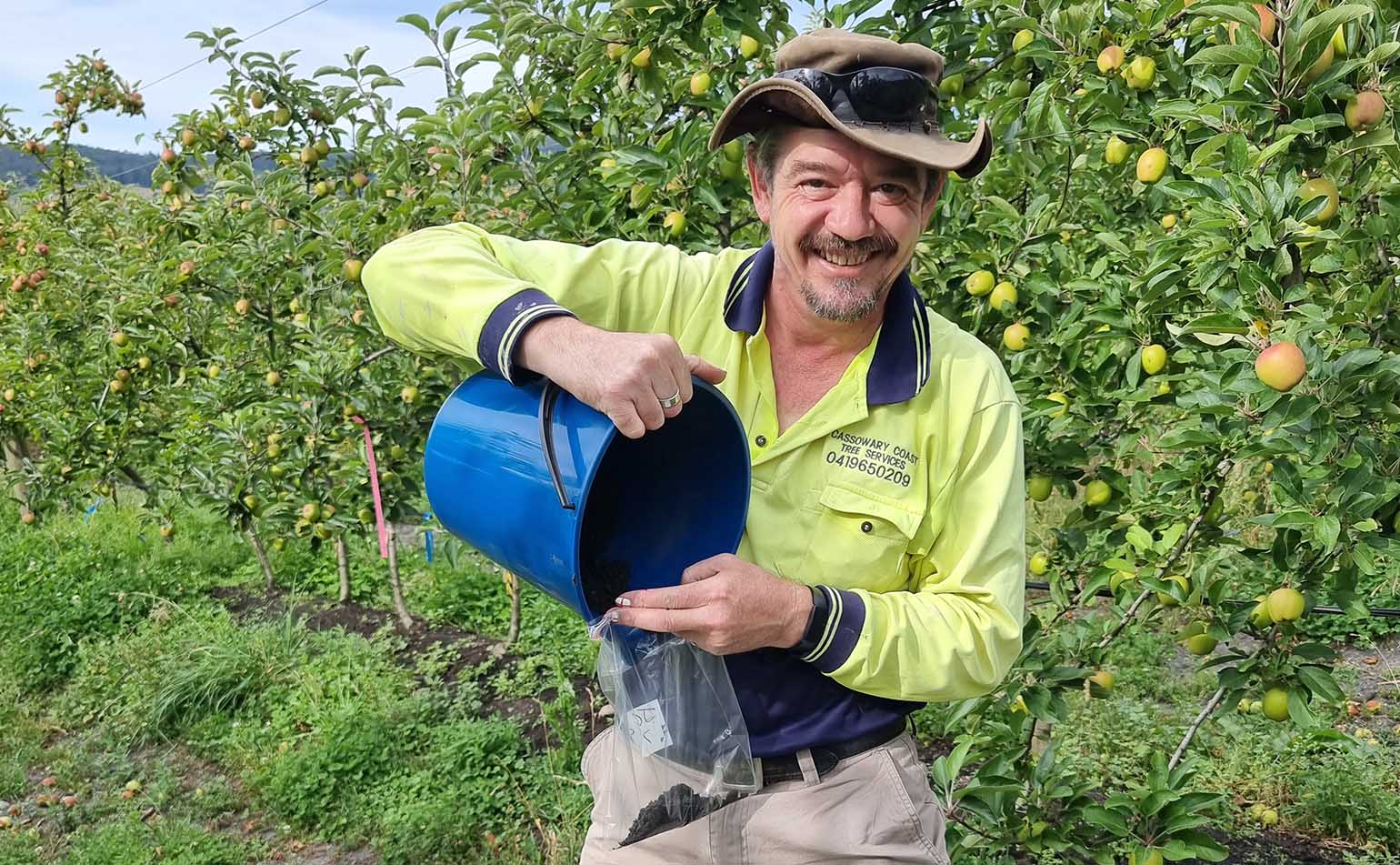As a former chef, Phil Kay’s passion for sustainable food production led him to embark on a PhD with the Soil CRC in 2019. Three years on, his research is uncovering the relationship between soil health and its biological communities. Read what Phil has to say about his PhD journey.
What is the aim of your PhD project?
My project is called ‘Microbial changes associated with improved or reduced soil health’. It looks at the living organisms within the soil and how they impact soil function. The aim is to characterise the diversity of those organisms (known as the soil microbiota), the abundance of particular microbial groups, and the level of enzyme activity in the soils.
I’ve been assessing the impact of stresses such as drought and waterlogging on soil microbiota to distinguish between soil health and soil fertility. I’m currently looking at the relationship between the volatile organic compounds (VOCs) released from the soil and the microbial communities within.
What do you hope your research will achieve?
I’m expecting to complete my PhD this year and will publish a final report that will be of interest to anyone involved in soil health for crop production. I hope it opens up a whole new field focusing on microbial VOCs and their potential benefits to the agricultural sector.
I’m optimistic that my research might lead to the development of biological fertilisers and herbicides that use VOCs. This could help farmers limit or even eliminate synthetic fertilisers, enabling their soils to ‘repair’ and support an increase in biological diversity. This could in turn support greater production and yields.
Who are you working with during your PhD?
I’m working with an expert team of researchers from the Tasmanian Institute of Agriculture (TIA) at the University of Tasmania. Dr Morag Glen is my supervisor and Dr Caroline Mohammed, Dr Marcus Hardie, and Dr Ross Corkrey are my co-supervisors. I have also been working extensively with TIA statistician Dr Ian Hunt.
What led you to apply for a PhD scholarship with the Soil CRC?
I’m a qualified chef and spent over 20 years working in Australia and overseas. My passion for good food led to a heightened interest in responsible and sustainable food production. I wanted to better understand how our agricultural practices can help us achieve this.
I completed a Bachelor of Agricultural Science (with Honours) at the University of Queensland in 2019, which piqued my interest in soil health and resilience. From there, I decided to pursue PhD research into soil health at the University of Tasmania and applied for a scholarship with the Soil CRC.
As your PhD comes to an end, what are you most proud of?
I think my proudest moment so far would be my recent presentation at the 3rd Global Soil Biodiversity Conference in Dublin, Ireland. This opportunity enabled me to meet many international scientists interested in this field. It has also given me a lot more confidence in sharing my work and allows me to feel like I belong in this community.
What are the benefits of the Soil CRC PhD student cohort?
Apart from the obvious benefits of the scholarship and budget to undertake my PhD, meeting and knowing the rest of the cohort has given me a great head-start on my networking journey. The workshops organised by our fantastic PhD Program Manager, Dr Cassandra Wardle, have been very beneficial in many aspects.

